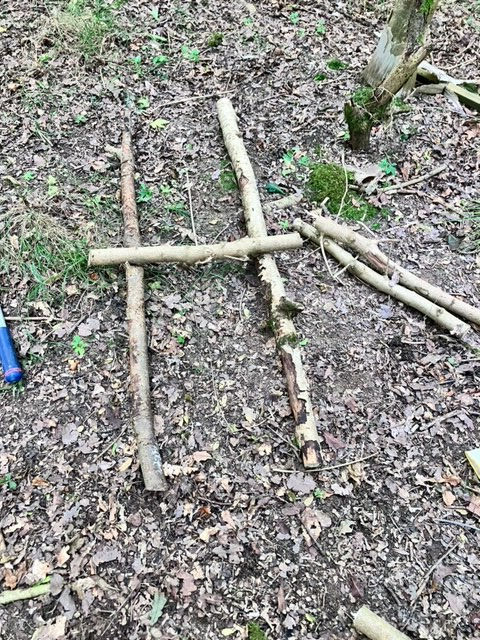1.1- Assignment (Unit 3): Summarise 2 recognised learning theories and explain their relevance to a forest school programme
- Naomi Harvey

- Jul 23, 2024
- 4 min read
Provide an overview of 2 of your chosen theories- including the name of the theory and the theorist who developed it.
Constructive Learning Theory.
Constructive Learning Theory allows learners to construct their own understanding and knowledge of the world through experiences and reflecting on those experiences. Jean Piaget and Lev Vygotsky are key advocates for this theory, Piaget emphasised stages of cognitive development, while Vygotsky highlighted the social context of learning and introduced Zone of Proximal Development (ZPD)
Jean Piaget's theory of play suggests that play and educational development are intertwined. As the children grow and develop, so should their play environment. This is based on Piaget's four stages of cognitive development.

Sensorimotor which is defined with the ages 0-2 years old, have the key features of learning through senses and actions, object permanence develops (meaning they start to understand just because they cannot see, feel or hear the object, it still exists). The theory believes we should provide this age group with a variety of sensory rich experiences to promote cognitive development. Toys and activities that encourage exploration, such as textured items, simple puzzles and rattles are highly beneficial.
Preoperational stage, focusing on ages between 2-7 is a huge development phase for the use of language, images and symbols to represent objects and ideas enhancing imaginative play and communication.
Children begin to understand situations from the perspective of other people and though misunderstandings and conflicts may occur, they start learning from these situations.
From an educational point of view, the theory believes we should incorporate activities that promote symbolic thinking such as storytelling, role playing and drawing.
Concrete Operational stage 7-11 years old. This stage is a crucial period of cognitive development where children refine their logical thinking skills and gain a deeper understanding of the physical world around them.
At this stage the theory believes that children can think logically about objects and events but may struggle with abstract or hypothetical situations.
They also begin to understand that quantity remains the same even when the shape or arrangement
Formal Operational Stage (12 years and older) The Formal Operational stage represents the pinnacle of cognitive development, enabling individuals to engage in reasoning, exploration of concepts, and personal identity formation. It equips them with the intellectual tools necessary for academic success, scientific inquiry, and navigating the complexities of adult life.
The way we can use Piaget's theory within our forest school sessions is that it can provide rich, hands on experiences that are ideal for constructive learning, children have the freedom to explore and ask any questions and engage with nature directly.
Being in a forest school setting also allows team activities to be carried out in a creative space and allows children to share ideas and work together and learn from each other, this will enhance their social learning.
Adding to this and following Piaget's theory this also creates scaffolding moments, in which we can guide children gently towards new challenges and creativity, slowly removing ourselves for them to complete their task and allowing competence to increase. This also includes Vygotsky’s ZPD, creating the difference between what a learner can do without help and what they can achieve with guidance.
The Experiential Learning Cycle
Another theory that I am drawn to is David Kolb's theory The Experiential Learning Cycle. Published in 1984 David Kolb came up with the concept of this theory that works on a four stage learning cycle.

Concrete Experience - This entails engaging in a new experience or reinterpreting an existing one.
Reflective Observation - This would create an opportunity to reflect on the experience that has just been created and to understand the significance.
Abstract Conceptualization - To have the opportunity to form new ideas or modify existing ones based on the reflections.
Active Experimentation - Finally being able to carry out those ideas or modifications to find the results and if we can reflect on our new findings.
This is a wonderful theory for forest school learning, as this can create a lot of hands-on activity moments and opportunities for the children to learn what they know, reflect and create something themselves, giving them the freedom to create in an outdoor space.
It is important for children to be able to reflect on their learning as this could run deeper and open them up to the realisation that being able to reflect about a situation, could create a better situation. Letting the children be able to create their own ideas or modifications can allow them to have an understanding of the natural world and the impact they can create while in an outdoor space.
By being able to be outside and dedicated time for reflection and active experimentation ,this allows them to immediately test out their new ideas and facilitate a continuous cycle of learning.
Summary
I believe within our forest school setting we will use both theories as they are very relevant to forest school programs. Constructive theory supports the idea that learners build knowledge through active engagement and social interaction, both of which are highly important in forest school, but also in day to day school life.
Experiential Learnings Theory defines the importance of hands-on experiences and reflection, again, I believe this is important within our forest school setting but also day to day life. Both of these theories help create a dynamic, engaging and effective learning environment where children can develop socially, academically and emotionally through direct interaction with nature.


Comments